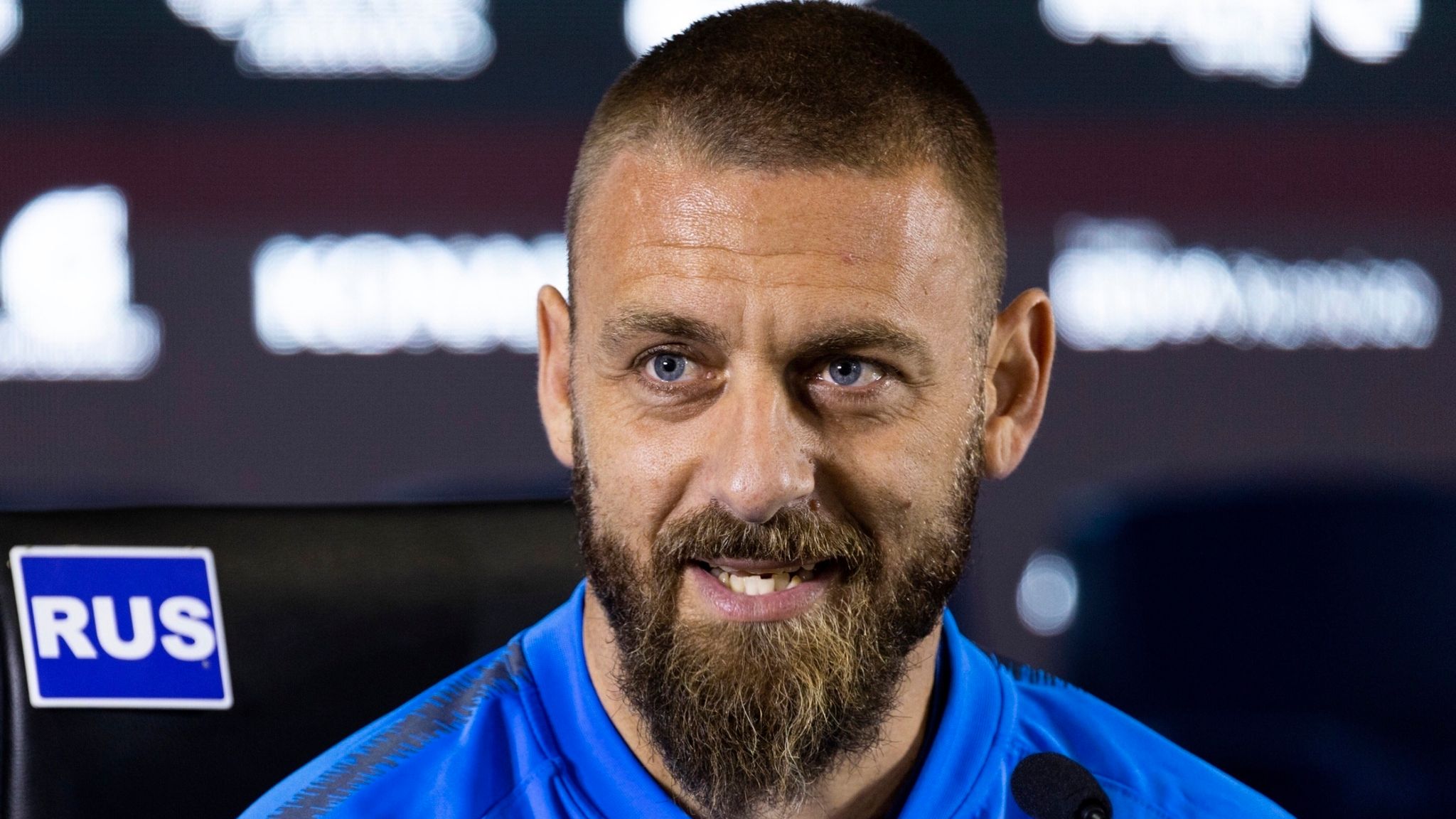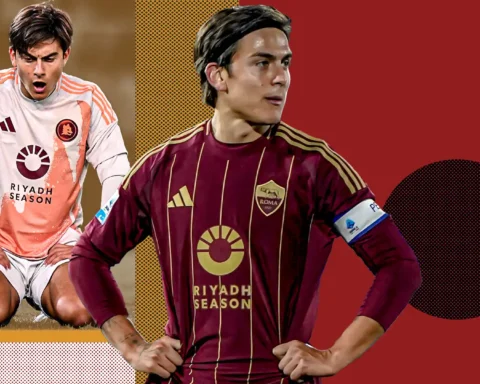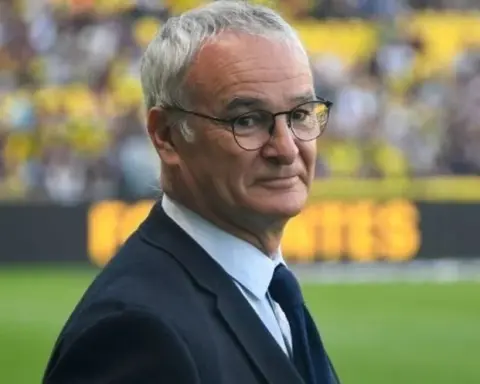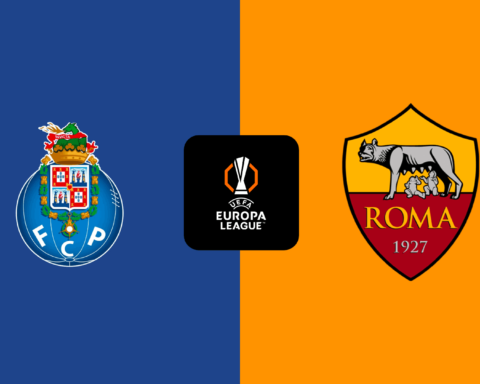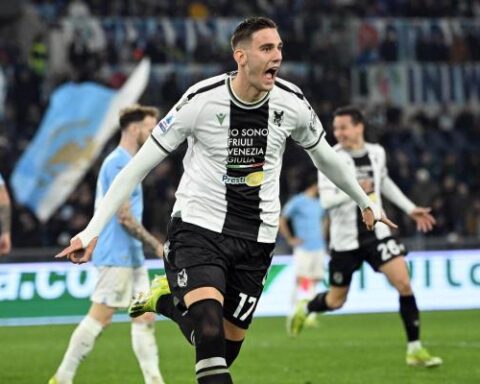Roma coach Daniele De Rossi spoke about his early months in charge of the club, sharing his experiences of taking over his boyhood side. The 40-year-old took charge of the Giallorossi at the turn of the year, taking over from Jose Mourinho, who was fired by the clubs management.
Speaking at the fifth edition of “The Coach Experience,” organized by AIAC, De Rossi spoke in-depth about his recent months with Roma:
De Rossi’s Approach to Coaching:
“If you invited me thinking I want to give a lesson, I’ll take the train home immediately. I’m here to learn, to engage with other coaches. I’ve done this often when I was on the other side of the desk, learning from every experience with established coaches. Even from those I didn’t like, I learned what not to do with my players.”
On His Start with Roma:
“It was an intense emotion, all unfolding within 24 hours. Yes, there were rumors, but I read them in the papers, often dismissing them as inventions. However, everything happened quickly and secretly. On the first day, I envisioned conducting thirty training sessions daily. I was excited, though I manage emotions well. My first match against Verona is unforgettable. I had many doubts, and I still do, but we improved gradually. Reflecting on it now, everything seems normal, but it all happened so fast. I was determined to prove myself and avoid the shadow of failure from my first experience. It might sound like a joke, but if we had drawn instead of winning that first game, everything might have changed.”
Tactical Flexibility:
“Luis Enrique often said, ‘If I had more time, I’d write you a shorter letter.’ It’s a beautiful sentiment. Sometimes, I must restrain myself from overwhelming players with information. As a player, I disliked coaches who held constant technical meetings. Too many meetings conveyed their insecurity, not clarity. Tactically, consistency is crucial. If you instruct conflicting strategies, it undermines clarity. Our system was sometimes misunderstood; for instance, saying we play with three at the back, but one of those is an offensive player like Angelino. True organization focuses on defense, knowing how to position against opponents. Initially, we pressed high, but after a few games, I told the team we could defend deeper if necessary. They felt more comfortable, and gradually we adapted. Flexibility is essential, but core principles must be clear.”
Leadership and Team Dynamics:
“I was a good teammate, never abusing my status, especially in a city like ours that lives for football. I used my influence to support my teammates. Now, I teach players it’s always a good time to encourage a teammate, even if they make a mistake. I want to pass on what I practiced as a player.”
Playing Style and Development:
“There isn’t just one way to play. Deep down, I believe in building from the back because it forces the opponent to respond. If they press high, you must recognize and weigh risks. Luis Enrique changed my perspective on football, even at nearly thirty. His influence was profound, showing us Barcelona’s style firsthand. Although I had already been with Spalletti, Enrique’s approach was transformative. Roberto De Zerbi is a master of playing from the back; his teams know exactly how and when to execute long passes.”
Coaching Youth vs. Senior Teams:
“I didn’t want to start with youth teams, unlike my father, whom I deeply admire for his work. A coach suggested starting there to experiment without pressure, but it felt self-serving. My ambition was greater than focusing solely on player development. If you recognize this, you can’t coach youth teams. They should be distinct categories. Winning should not be the primary goal; developing and improving players should be.”
Building Credibility as a Coach:
“Aldo Serena said that in the drone era, coaches who connect with players are decades ahead. Ezio Capuano stated that a coach must captivate his players’ interest. I agree. Telling a player to follow orders because they are paid is insufficient. Every player has a different key, and you must find it. Credibility also comes from fieldwork. This year, we noticed a player struggling with jumps because he kept his arms down. We worked on it, and results followed.”
Ball Recovery and Tactical Adjustments:
“At Roma, we realized that after losing possession, we often conceded shots quickly. The fluidity of our play sometimes led to disorganization in transitions. While it’s praised when successful, it can be dangerous without the right players. We worked on the desire to regain possession, often focusing on defensive positioning rather than immediate pressure. This will be an area of ongoing improvement.”
Experience in Ferrara vs. Rome:
“My approach remains the same. I arrive early, prepare training similarly, and maintain relationships with players and staff. The difference lies in others’ perceptions. In Ferrara, putting my hands in my pockets seemed awkward; in Rome, it was seen as confidence. Perception shifts with results. In Rome, initial victories made me appear confident. Fortunately, I get along well with everyone here, unlike some human issues I faced in Ferrara.”
The Importance of Authenticity:
“In my thesis with Ulivieri, I stated that I don’t like raising my voice. Authenticity is key. Coaches often give generic speeches about respect and effort, but actions speak louder. Players notice inconsistency immediately. I strive to be authoritative without shouting, as I did as a player. Rarely did I confront anyone physically. Conte’s genuine anger was effective because it was real. Mimicking that would be ridiculous for me. I prefer speaking calmly yet firmly. Respect is earned through consistent behavior. For instance, in preparation for the derby, I motivated players by asking them to think about their childhood rival teams. This approach resonated more than just stressing the importance of the derby.”

